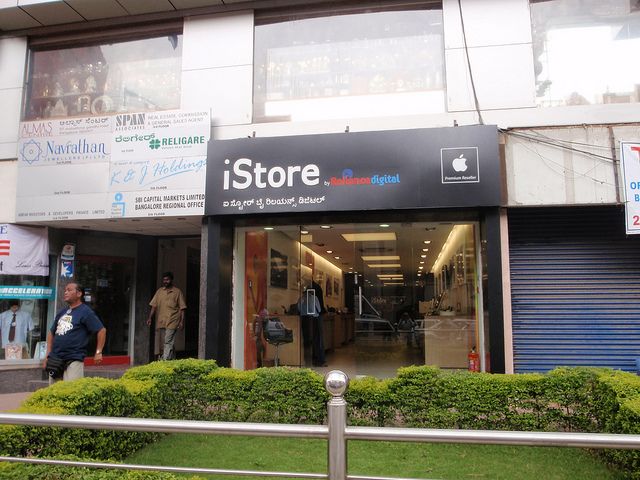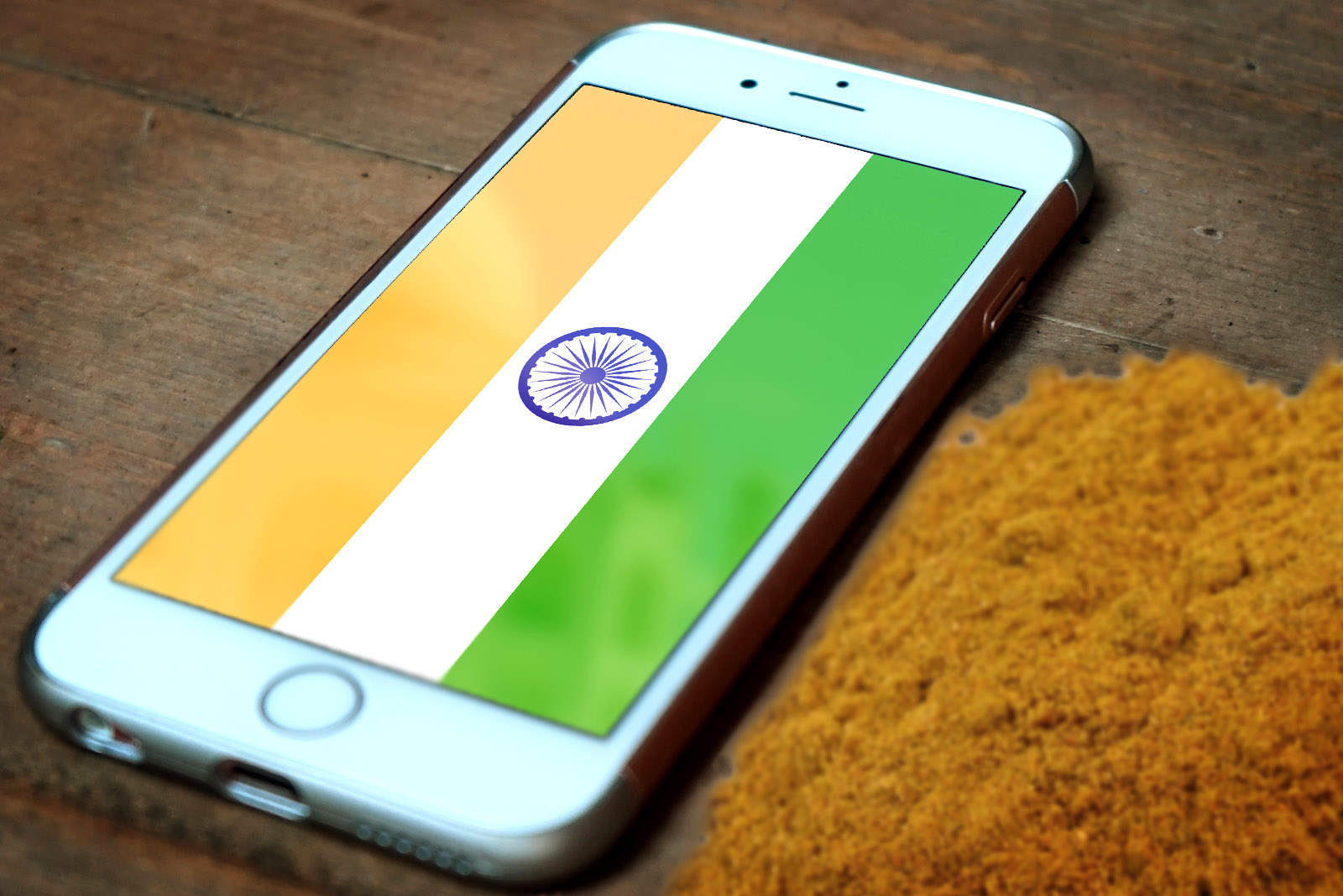Apple is moving some more of its iPhone production to India, as China continues to grapple with the spread of coronavirus.
Renowned Apple analyst Ming-Chi Kuo has some details as to how coronavirus is impacting on Apple factories in China.

Apple is moving some more of its iPhone production to India, as China continues to grapple with the spread of coronavirus.
Renowned Apple analyst Ming-Chi Kuo has some details as to how coronavirus is impacting on Apple factories in China.

Apple was reportedly the fastest growing premium smartphone brand in India last year — with a massive 41% growth year-over-year. The iPhone XR wound up being the country’s most popular “ultra premium” handset, claims Counterpoint Research. This was followed by Samsung’s Galaxy S10 Plus and OnePlus 7 Pro.
That’s great news for Apple. But there’s still a long way to go.

Apple supplier Wistron has plans to assemble printed circuit boards for future iPhones at a new plant in southern India, a new report claims.
Wistron already manufactures iPhone 6s and 7 models in India. It started out manufacturing iPhones for the Indian market by building iPhone SE modes in 2017.

Apple has reduced the price of HomePod to $280, a further reduction on the $349 it charged initially for its smart speaker. Unfortunately, you’ll have to be living in India to take advantage of it.
Having released the HomePod in 2018 in the United States, Apple has finally launched it in India. This heavily populated market is comparable in size to China. However, Apple has not yet been able to make too many inroads in terms of sales.

Apple’s first retail store in India reportedly won‘t open in time for the launch of the 2020 iPhone. And even online sales allegedly won’t begin until the second half of this year.
There have supposedly been problems in Apple’s efforts to begin selling iPhones and other devices directly to consumers in India.

There are few big markets that Apple has yet to crack. But one of the biggest, India, it’s really struggled with. In a population of more than 1.311 billion people, Apple holds just a few measly percentage points of the local smartphone market.
But things may be looking up slightly, as a new report makes clear.

Apple contract manufacturer Wistron is reportedly ramping up its iPhone production abilities in India. Wistron already has two plants located in Bengaluru, which have been producing iPhones for the local market. But now it’s got a third, located in Narasapura, which will also build phones for Apple.
This will greatly increase Wistron’s abilities to build large quantities of iPhones for Apple.

India wants to woo Apple suppliers into opening factories in the country. To that end, it may offer attractive subsidized loans to make it more appealing.
The proposals by the Ministry of Electronics and Information Technology may be part of a new federal budget for February. Alongside the subsidized loans for opening factories, it would also cover “industrial zones equipped with taxation and customs clearance.”

Apple is among the parties named in a notice issued by the Delhi High Court, regarding evidence concerning a recent assault on a campus at India’s Jawaharlal Nehru University (JNU).
Apple is being asked to hand over user data that may include messages, pictures, video, and more. In other words, this sounds like another potential privacy headache for Apple.

When India launches an incentive program to lure production companies to make movies in the country, Apple apparently wants in. According to a new report, upcoming Apple TV+ series Shantaram might become “one of the first major foreign productions to tap into the country’s impending film incentives scheme.”

Apple will assemble more products in India after expanding its local manufacturing operations.
Ravi Shankar Prasad, India’s information technology minister, today confirmed the move will create around 10,000 new jobs over the next five years.

iPhone production in India is reportedly ramping up, with 2018’s iPhone XR supposedly being assembled there.
The units allegedly aren‘t for export, but will be sold in-country.

Apple has reportedly selected the location for its first Apple Store in India. The store will be located in Maker Maxity mall in Mumbai, India’s most populous city with a population of around 18 million.
Cupertino is aiming for a September 2020 opening for the Mumbai Apple Store. That’s around the time Apple should release the next-gen iPhone.

Apple is reportedly spending $1 billion on growing its production capacity in India. This is part of an ongoing move away from the tariffs that will soon be levied on iPhones assembled in China.
It might also help increase Apple’s sales in India.

Immediate reactions to the iPhone 11 in China and India have been somewhat muted, initial analyst and social media comments suggest.
While the handsets have yet to go on sale, it hints that this year’s refresh may not be game-changers in the world’s two most populated markets.

Apple’s current share of the smartphone market in India is just 1%. But if Apple could somehow raise that to 4% it would bring in approximately $4.6 billion in extra revenue — alongside earnings upside of 65 cents per share.
That’s according to Evercore IMI analyst Amit Daryanani. And Daryanani thinks Apple may be able to do it, too.

Apple is getting excited at the prospect of opening its long-awaited first retail store in India.
“We appreciate the support and hard work by Prime Minister Modi and his team to make this possible and we look forward to one day welcoming customers to India’s first Apple retail store,” Apple said in a statement Thursday.

Apple may have finally succeeded in its long, long quest to be allowed to sell its products directly in India. Until now, the company has been forced to go through third-party resellers, but the Indian government today changed the rule that was hobbling Apple.
Being able to deal directly with the public might increase Apple’s poor sales of iPhones in this huge market.

Apple has a slender percentage of Indian handset sales, but there’s cause for optimism. We spoke with Anshika Jain, an analyst at Counterpoint Research, to see whether the changes Apple has been making to its business practices in India started to bear fruit during the second quarter of this year, and what they might mean for the future.

A Netflix subscription that costs less than $3 a month sounds like a dream come true, but there are some caveats. Video can only be streamed to a single iPhone, iPad or other mobile device, and that device has to be in India.
This super-low tier was created to appeal to the huge potential market in that country.

Apple is petitioning the Indian government to rethink its policies regarding manufacturing. The move comes as Apple looks to lessen its reliance on China as a manufacturing base.
According to a new report, Apple is pushing for the Indian government to adopt reduced import duties. These would cover components that would later be re-exported.

Apple has stopped selling its cheaper iPhones in India, driving up the price of an “entry-level” iPhone in the process.
A new report notes that Apple has stopped selling the iPhone SE, iPhone 6, 6 Plus and 6s Plus. This is part of a change of strategy on Apple’s part.

Apple is reportedly significantly increasing iPhone production in India. Rather than just making low-end handsets, the latest top-tier models will be manufactured and sold there.
These will be less expensive than imported units and might improve Apple’s sales in this huge potential market.

Apple has reportedly starting exporting some of its “Made in India” iPhones to Europe.
This marks a leap forward in Apple’s plans to make India one of its manufacturing hubs. Previously, phones made locally were only sold in India.

Apple’s much-delayed dreams of opening an official Apple Store in India may finally be close to coming true.
In Indian Finance Minister Nirmala Sitharaman’s maiden budget speech, the minister announced the relaxation of laws concerning single brand stores. These rules stated that 30% of goods sold in these stores had to be sourced locally. However, it seems they may no longer apply.